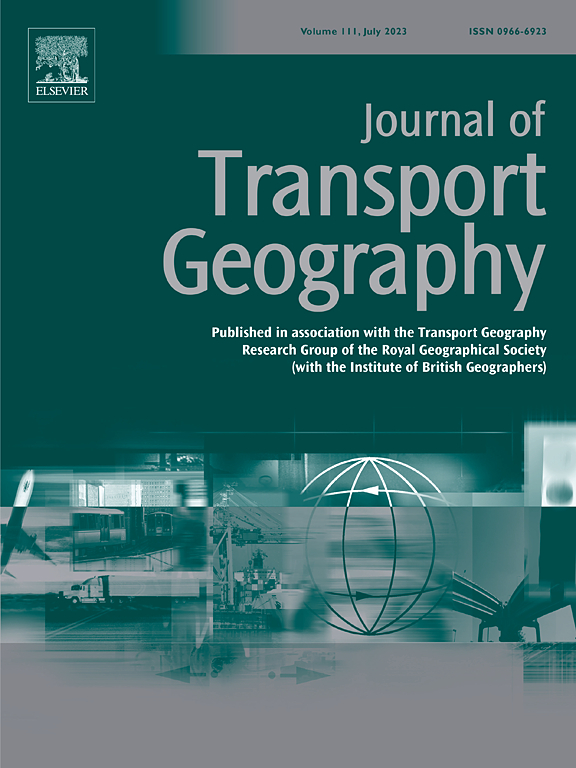A comparative analysis of cross-sectional study and natural experiment in rail transit-travel behavior research: A case study in Wuhan, China
IF 5.7
2区 工程技术
Q1 ECONOMICS
引用次数: 0
Abstract
There has been a global increase in investment in rail transit, driven by its potential to enhance transportation efficiency, reduce air pollution, and stimulate economic growth. Both cross-sectional studies and natural experiments have contributed to the growing body of evidence supporting these claims. While natural experiments are commonly preferred for evaluating the impact of rail transit, cross-sectional studies remain popular due to their ease of data collection. However, there is a scarcity of studies that compare these two approaches using the same dataset to assess the robustness of cross-sectional studies. Using a two-wave panel dataset from Wuhan, China, this study used both cross-sectional and natural experimental analyses to examine the relationship between urban rail transit and travel behavior. The study attempted to enhance the credibility of the cross-sectional analysis by controlling for confounding variables and by combining it with the propensity score matching (PSM) method, respectively. The results revealed that the cross-sectional analyses could produce similar results, when setting a more stringent significance level. The findings suggested that well-designed cross-sectional studies can be reliable and represent a cost-effective alternative to resource-intensive natural experiments.
轨道交通出行行为研究中横断面研究与自然实验的比较分析:中国武汉案例研究
由于轨道交通具有提高运输效率、减少空气污染和刺激经济增长的潜力,全球对轨道交通的投资不断增加。横断面研究和自然实验都为越来越多的证据支持这些说法做出了贡献。虽然自然实验通常是评估轨道交通影响的首选,但横断面研究因其易于收集数据而仍然很受欢迎。然而,很少有研究使用相同的数据集对这两种方法进行比较,以评估横截面研究的稳健性。本研究使用来自中国武汉的两波面板数据集,同时使用横截面分析和自然实验分析来研究城市轨道交通与出行行为之间的关系。研究试图分别通过控制混杂变量和结合倾向得分匹配法(PSM)来提高横截面分析的可信度。结果表明,当设定更严格的显著性水平时,横截面分析可以得出相似的结果。研究结果表明,精心设计的横断面研究是可靠的,是替代资源密集型自然实验的一种具有成本效益的方法。
本文章由计算机程序翻译,如有差异,请以英文原文为准。
求助全文
约1分钟内获得全文
求助全文
来源期刊

Journal of Transport Geography
Multiple-
CiteScore
11.50
自引率
11.50%
发文量
197
期刊介绍:
A major resurgence has occurred in transport geography in the wake of political and policy changes, huge transport infrastructure projects and responses to urban traffic congestion. The Journal of Transport Geography provides a central focus for developments in this rapidly expanding sub-discipline.
 求助内容:
求助内容: 应助结果提醒方式:
应助结果提醒方式:


